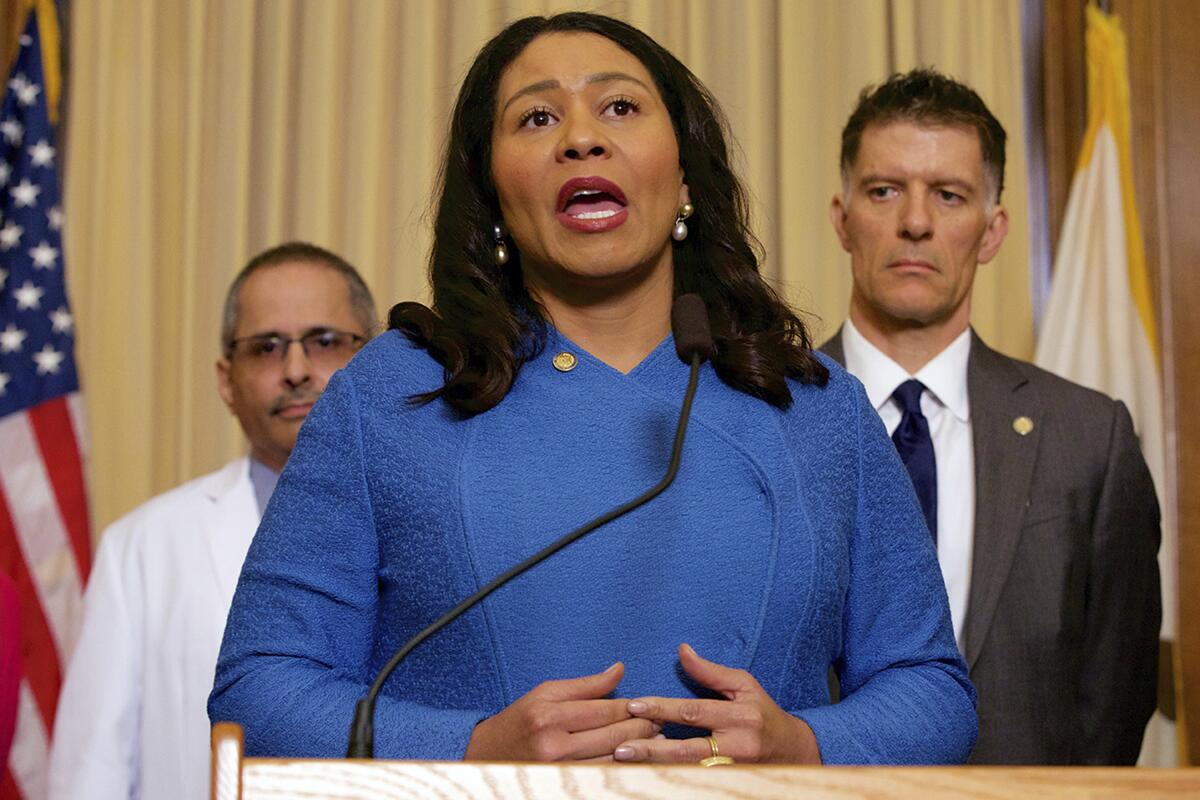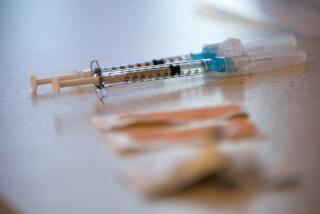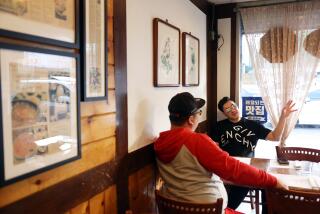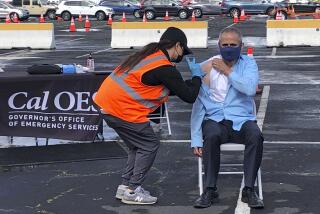Teachers, food employees, essential workers cleared for COVID-19 vaccine in San Francisco

San Francisco will begin vaccinating teachers and other essential workers on Feb. 26, but Mayor London Breed said the vaccines would likely not be enough to get staff and students back in public school classrooms.
During an online news conference, officials announced the city would open up vaccines to educators, child-care workers, food and agricultural employees and first responders later this month, but supply was likely to be limited.
The city has the capacity to give vaccines to more than 10,000 people a day but has been receiving only 10,000 to 11,000 doses a week. So far, officials said, more than 30% of San Franciscans age 65 and older have received a first dose.
Breed, who is supporting a lawsuit to try to force public schools to reopen for in-person teaching, said she was pessimistic that a recent tentative agreement between unions and the school district would lead schools to reopen during the current school year.
“I don’t think it is realistic we can expect schools to open this school year,” she said.
The school unions have tentatively agreed to return to classrooms when the city moves into the red tier if staff can be vaccinated. The red tier is the second-most-restrictive level, indicating there’s still substantial spread of the virus.
Without vaccines, staff would return when the city reached the orange zone, which indicates moderate virus spread. San Francisco is now in the purple tier, the most restrictive level, assigned to places where the virus is widespread.
Although teachers will soon be eligible for vaccines, the limited supply is likely to curb the numbers who can receive shots quickly.
Breed said the city’s public health department, which she called the most conservative of any health agency in a major city, had said it was safe for public school staff and students to resume in-classroom instruction. Private school campuses have been open for months without any major outbreaks, she said.
“Our children are suffering,” she said. “There is no way I would ever support using the legal system to try and get our schools open if we were on a path of moving it forward, and if it weren’t for the [Department of Public Health] telling us it is safe to do so.”
San Francisco City Atty. Dennis Herrera, who filed the lawsuit against the school district, will ask a judge this week to issue an injunction to force the school district to act. School officials have called the lawsuit divisive and frivolous.
Public Health Director Dr. Grant Colfax said at the news conference that San Francisco’s intensive care unit capacity remained good and hospitalizations for COVID-19 were down, but new cases have stopped their rapid decline.
“What concerns me is that new cases of COVID-19 have stopped declining,” Colfax said, “and there has been a trending up in the last several days.”
The city now averages 135 new cases a day, down from 373 a month ago. He said the leveling off of the decline might be due to the city’s recent reopening — restaurants are now open for outdoor dining, and other activities have been allowed to resume outdoors.
Colfax also cited the presence of a more infectious variant of the virus that has been found in California and warned that residents should continue to wear masks, physically distance and avoid mingling with other households.
Acting San Francisco Health Officer Dr. Susan Philip said the more infectious variant first detected in the United Kingdom had not yet been found in samples tested in San Francisco, but California has the second-highest number of such cases in the country. The variant has been found elsewhere in the Bay Area.
Although models predict the variant will become the dominant strain of the virus next month, people should “not let the models become our destiny,” she said.
Residents can still curb the spread by covering their faces, distancing and frequently washing their hands, she said.
“We have the power in our hands,” Philip said, “to not only stop the variants we have now but also to stop new ones from emerging.”
More to Read
Sign up for Essential California
The most important California stories and recommendations in your inbox every morning.
You may occasionally receive promotional content from the Los Angeles Times.











